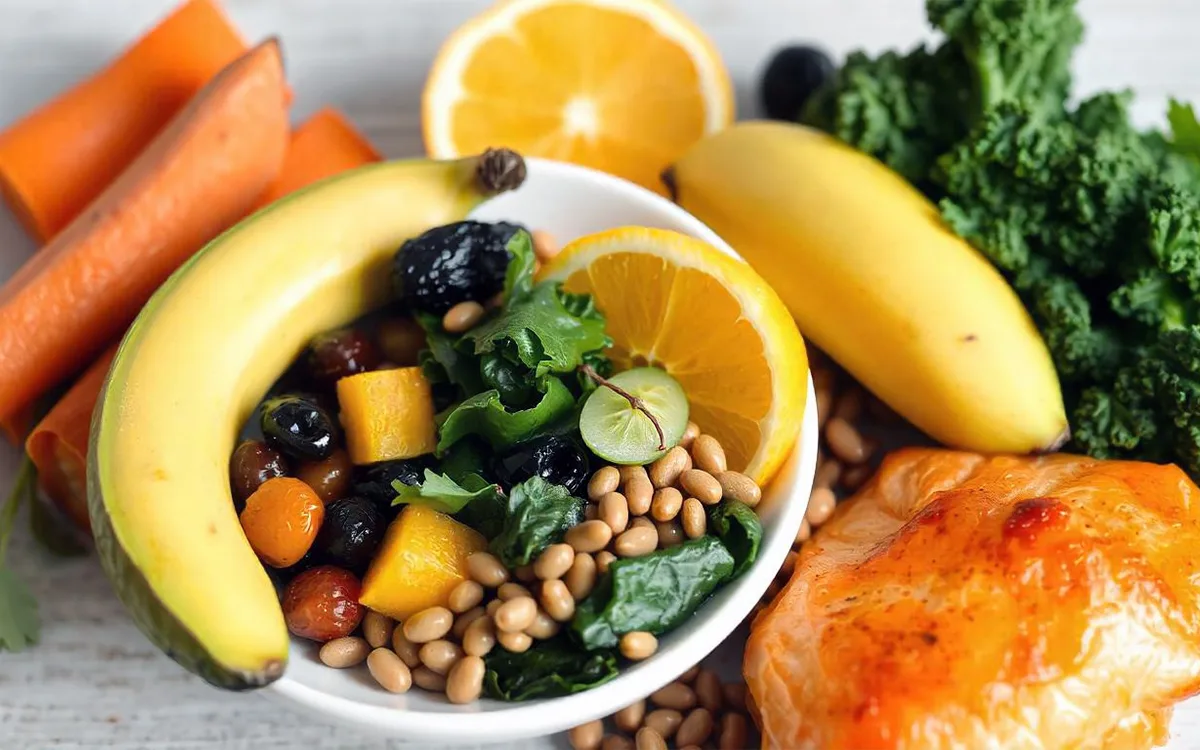Potassium is one of those unsung heroes of nutrition that often goes unnoticed despite playing a critical role in maintaining overall health. While we frequently hear about vitamins and minerals like calcium, magnesium, and iron, potassium deserves a spot in the spotlight. Why? Because potassium is essential for several bodily functions, including maintaining fluid balance, supporting muscle contractions, and ensuring proper nerve signals. So, whether you are looking to increase your potassium intake or simply want to learn about potassium-rich foods, this blog has you covered. Let us explore the world of potassium and how it keeps your body thriving.
Why Potassium Matters
Potassium in the body is like an invisible force working behind the scenes. It helps regulate fluid balance, supports healthy nerve transmission, and keeps your muscles functioning efficiently. If you have ever experienced muscle weakness or cramps, it might be time to assess whether your potassium intake is sufficient. Healthy people need a well-rounded diet that includes ample potassium to maintain proper bodily functions.
On average, the recommended daily intake of potassium for adults is around 2,500 to 3,000 mg of potassium, though this can vary based on age, gender, and activity level. However, not everyone meets this target, which can lead to imbalances that affect energy, muscle health, and overall wellness.
Potassium-Rich Foods You Should Know About
The best way to increase your potassium intake is through natural sources of potassium found in a variety of foods. Here are some top choices to include in your daily diet:
- Sweet Potatoes
Sweet potatoes are both flavorful and a rich source of potassium. A single cup of cooked sweet potatoes contains approximately 448 mg of potassium. This makes them an excellent addition to your meals, especially when roasted or mashed. Plus, they are packed with vitamins and fiber, making them a nutrient-dense option.
- Dried Fruit
Dried fruit, such as apricots, raisins, and prunes, is another fantastic option for potassium intake. For example, half a cup of dried apricots provides about 755 mg of potassium. These snacks are not just high in potassium but also portable, making them ideal for a quick energy boost.
- Fruits and Vegetables
Fruits and vegetables are the cornerstone of a potassium-rich diet. Bananas, often touted as a potassium powerhouse, provide around 422 mg of potassium per medium-sized fruit. Other options include oranges, avocados, spinach, and kale. Incorporating a mix of fresh produce into your diet ensures you are getting a diverse amount of potassium.
- Beans and Lentils
Beans and lentils are not only high in potassium but also a great source of plant-based protein. For example, a cup of cooked lentils contains about 731 mg of potassium. Adding them to soups, salads, or stews can significantly increase your daily potassium intake.
- Fish and Seafood
Fish like salmon, tuna, and halibut are high in potassium and also rich in heart-healthy omega-3 fatty acids. A 3-ounce serving of salmon can provide around 416 mg of potassium, making it a great choice for your main course.
Understanding Potassium Intake and Balance
The amount of potassium you need depends on your individual lifestyle and health status. For example, athletes and highly active individuals may require more potassium to replenish what is lost through sweat. On the other hand, people with specific medical conditions might need to monitor their potassium intake closely.
Balancing potassium with other electrolytes, such as sodium, is equally important. Too much sodium in the diet can disrupt this balance, leading to potential health issues. This is why a diet rich in fruits and vegetables, which are naturally high in potassium and low in sodium, is so beneficial.
A Note on Muscle Weakness
If you have been feeling tired or experiencing muscle weakness, it might be a sign to evaluate your potassium intake. While it is always essential to seek professional advice for persistent symptoms, incorporating potassium-rich foods into your diet can be a simple and effective way to support your overall health.
Conclusion
Potassium is a vital nutrient that often does not get the attention it deserves. From maintaining fluid balance to supporting muscle function, potassium plays a crucial role in keeping your body healthy. By incorporating potassium-rich foods like sweet potatoes, dried fruit, and a variety of fruits and vegetables into your diet, you can naturally meet your daily requirements. Remember, a balanced diet filled with diverse sources of potassium is key to supporting your overall wellness.
Take charge of your health by making small, sustainable changes to your diet. With so many delicious and nutritious options to choose from, increasing your potassium intake has never been easier.

